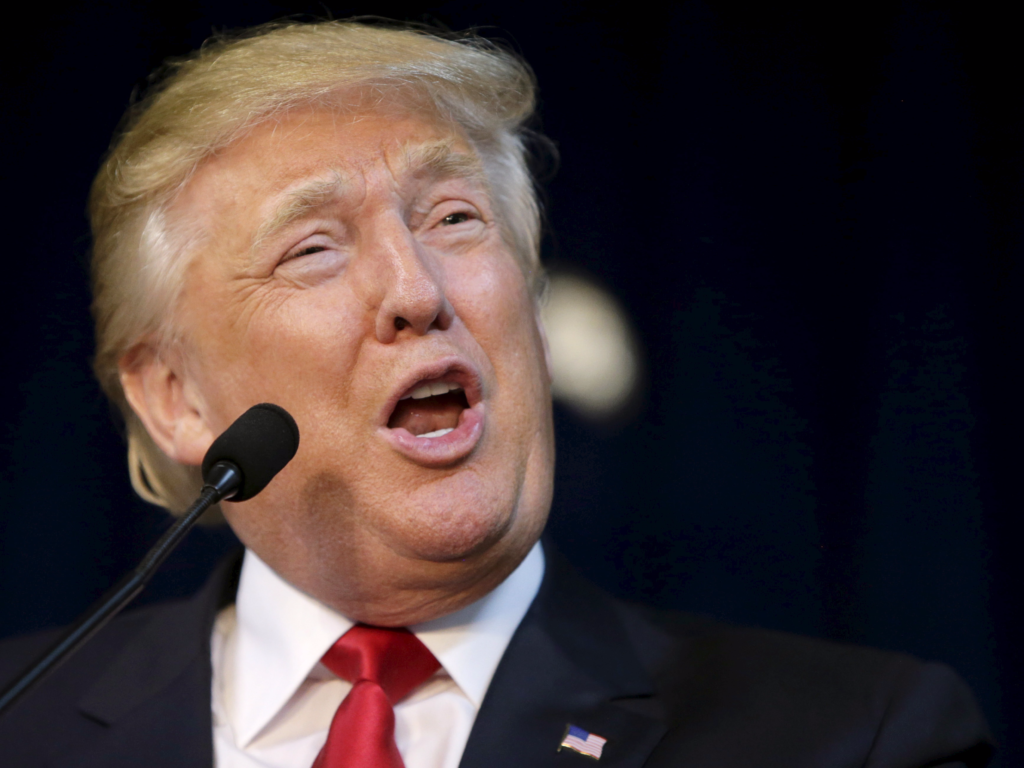
Earlier this month, Donald Trump spoke to a rally in Portland, Maine where he repeated one of his most infamous platform positions: that, as president, he would restrict immigration from so-called “terrorist nations” which he has previously said would include Afghanistan, Iraq and Syria.
On August 6, however, Trump offered an expanded list of “terrorist nations” he would blacklist with regard to new immigrants, adding Morocco, Somalia, Yemen, Uzbekistan, Pakistan and the Philippines.
While providing this expanded list, Trump reportedly said that refugees from all “terrorist nations” should be banned from entry into the United States.
“We’re dealing with animals,” he said of immigrants from these countries, including Filipino and Pakistani immigrants. Later on the Charlie Rose show, Trump was asked if he would include nations like Belgium or France in his list of “terrorist nations,” given the recent spate of high-profile terrorist attacks; Trump declined to comment.
The comments sparked almost immediate backlash from the AAPI community. As well it should: this remark underscores the xenophobia that underlies the Trump campaign. Guam Senator Nerissa Underwood issued a statement saying, “This is reckless and does not embody our values as a country or island. The Philippines helps America fight terrorism.”
A congressman of the Phillipines, Joe Salceda, suggested banning Trump from the country for the “wholesale labeling of Filipinos as coming from a ‘terrorist’ state.”
America is home to 1.9 million immigrants from the Philippines and 371,000 immigrants from Pakistan. An additional 500,000 immigrants are currently on the waiting list to enter the country from the Philippines and Pakistan, resulting in a nearly 20-year waiting period for prospective immigrants. Indeed, the Filipinos represent the second largest population of immigrants awaiting a valid U.S. visa, and the largest for any Asian nation.
Trump’s proposed restrictions on immigrants from the Philippines and other nations would tie up the visa approval process with so much additional red tape as to effectively close immigration from these countries entirely.
At an historic non-partisan Presidential Election Forum co-organized last week by the Asian American Journalists Association (AAJA) and Asian Pacific Islander American Vote (APIAVote), Trump surrogate Utah Attorney General Sean Reyes pulled Trump back from his comments about the Philippines earlier this month. In remarks at the event — the first presidential election event in history to focus on the AAPI community and to include representatives from the presidential campaigns of four political parties — Reyes suggested that Trump didn’t intend to ban all Filipinos, just “terrorist” ones.
He said:
I want to clarify first some comments that Mr. Trump made about the Philippines. And being Filipino, those issues are near and dear to my heart. What Mr. Trump was trying to communicate — and I have full authority to make this clarification — is that he welcomes law-abiding Filipinos who want to come and have a better life or better opportunities, whether they want to live here or go back to the Philippines, send money back to their families there. He welcomes them. … He was talking about specifically terrorist elements that do exist in the Philippines and there’s no one here from the Philippines who can dispute that.
This explanation doesn’t seem to jibe with Trump’s original remarks, wherein he labeled immigrants a “Trojan Horse.” “We are letting people come in from terrorist nations that shouldn’t be allowed because you can’t vet them,” he reportedly said, suggesting that Trump was advocating delaying all immigrants from his list of “terrorist nations” so that additional background checks could be performed.
Meanwhile, Trump speaks more favorably of the Philippines when it comes to making money. On his website and in oral statements, Trump has lauded the Philippines in relation to the building of a new luxury Trump tower in Makati. Clearly, Trump believes that Filipinos are “animals,” except under circumstances where he can turn a profit.
I didn’t think my opinion of Trump could get much lower. We can put to rest any lingering doubts we might have had that about Trump; we now know that when he says “Muslim” he means “non-White”, and when he says “terrorist” he means “brown.” When Trump says he supports a ban on Muslims, it’s increasingly clear he means a ban on most non-White immigrants. As further evidence of the race-baiting of the Trump candidacy, we might note that earlier this week, a biracial Asian American Trump supporter was removed from a rally because his skin colour led organizers to believe he was a protester.
No one non-White appears safe from Trump’s wild and reckless race-baiting generalizations. According to Trump, all of us are potentially “terrorists” and “animals.”
